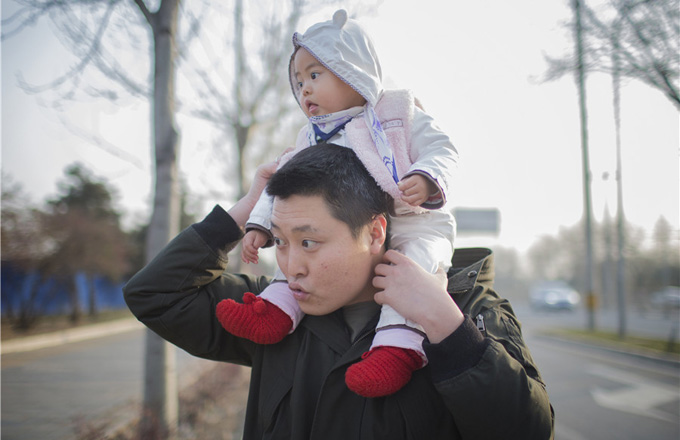Smog returning to Beijing area
The Beijing-Tianjin-Hebei area and neighboring regions are forecast to see heavy air pollution starting on Thursday and lasting for three days as a result of climatological conditions and holiday fireworks, officials said.
The density of PM2.5, particulate matter with a diameter smaller than 2.5 micrometers, will peak on Friday in the region, the Ministry of Environmental Protection said on its official website.
Conditions were worsened by the traditional practice of setting off firecrackers on the fifth day of the first month in the lunar calendar, which fell on Wednesday this year.
"The air diffusion conditions will gradually get better on Sunday in most areas in the country, which will ease the pollution," the announcement said.
Other factors also contributed to the air pollution in the Beijing-Tianjin-Hebei region.
Many large companies, especially steel mills and petrochemical factories, do not stop production during the Spring Festival holiday in that area. Authorities found that some companies in Hebei province were discharging emissions above the amount allowed.
With the Spring Festival holiday ending on Thursday, small and medium-sized companies will restart production and a large number of people will return to their jobs in the cities. Those factors also add emissions that affect the air quality.
The Environmental Protection Ministry said it will closely monitor air quality changes and ask the local governments to strictly forbid excessive emissions.
In recent years, the ministry has encouraged the public not to set off firecrackers to celebrate the new year for the sake of air quality.
Feng Yinchang, a professor specializing in environmental protection at Nankai University, said coal-burning boilers for heating constitute a major source of winter air pollution in Beijing and neighboring regions.
Even though most downtown areas have replaced the use of coal for heating with cleaner energy such as natural gas, in large rural areas around Beijing, families still use coal for heating, resulting in high sulfur dioxide emissions.























